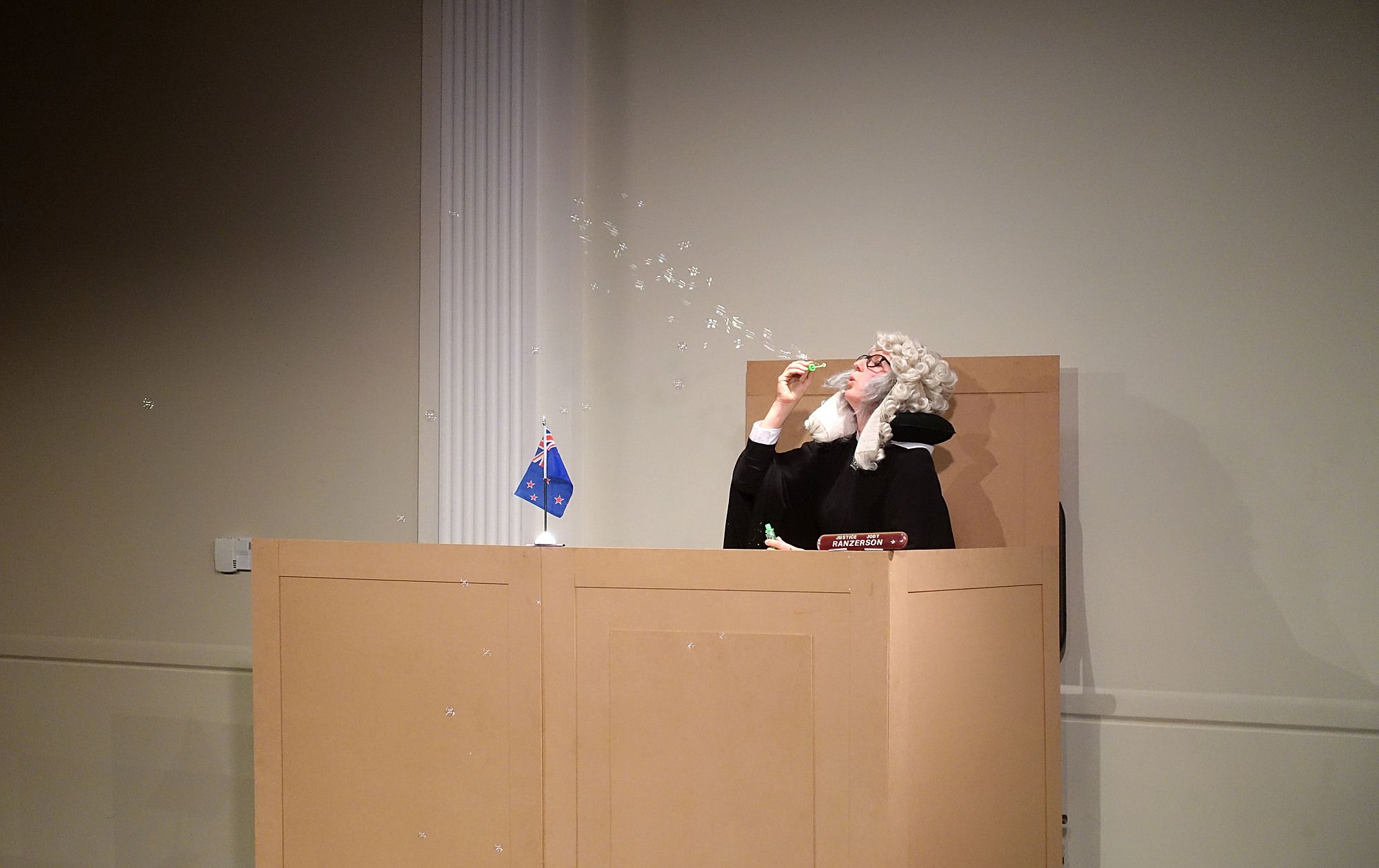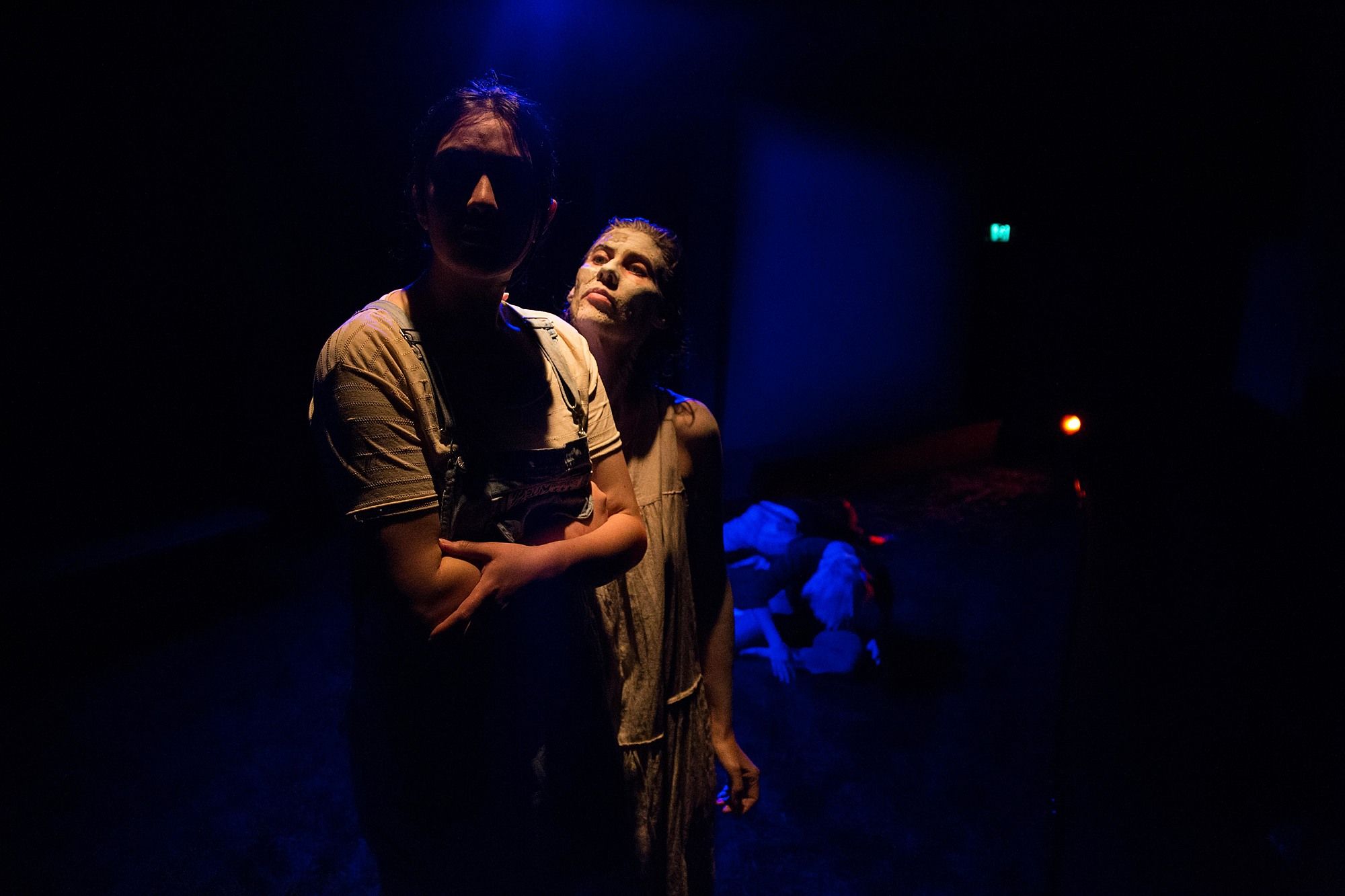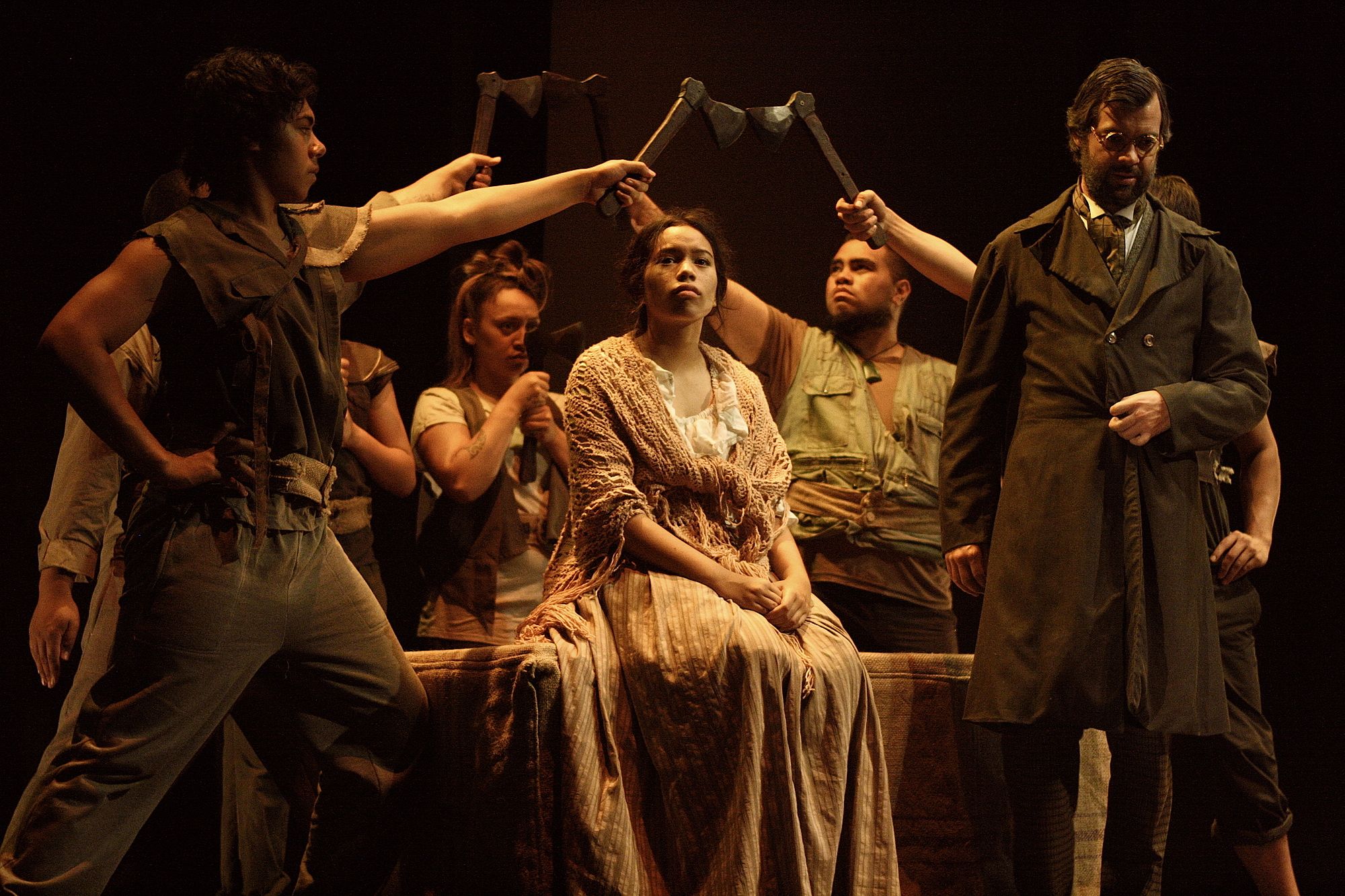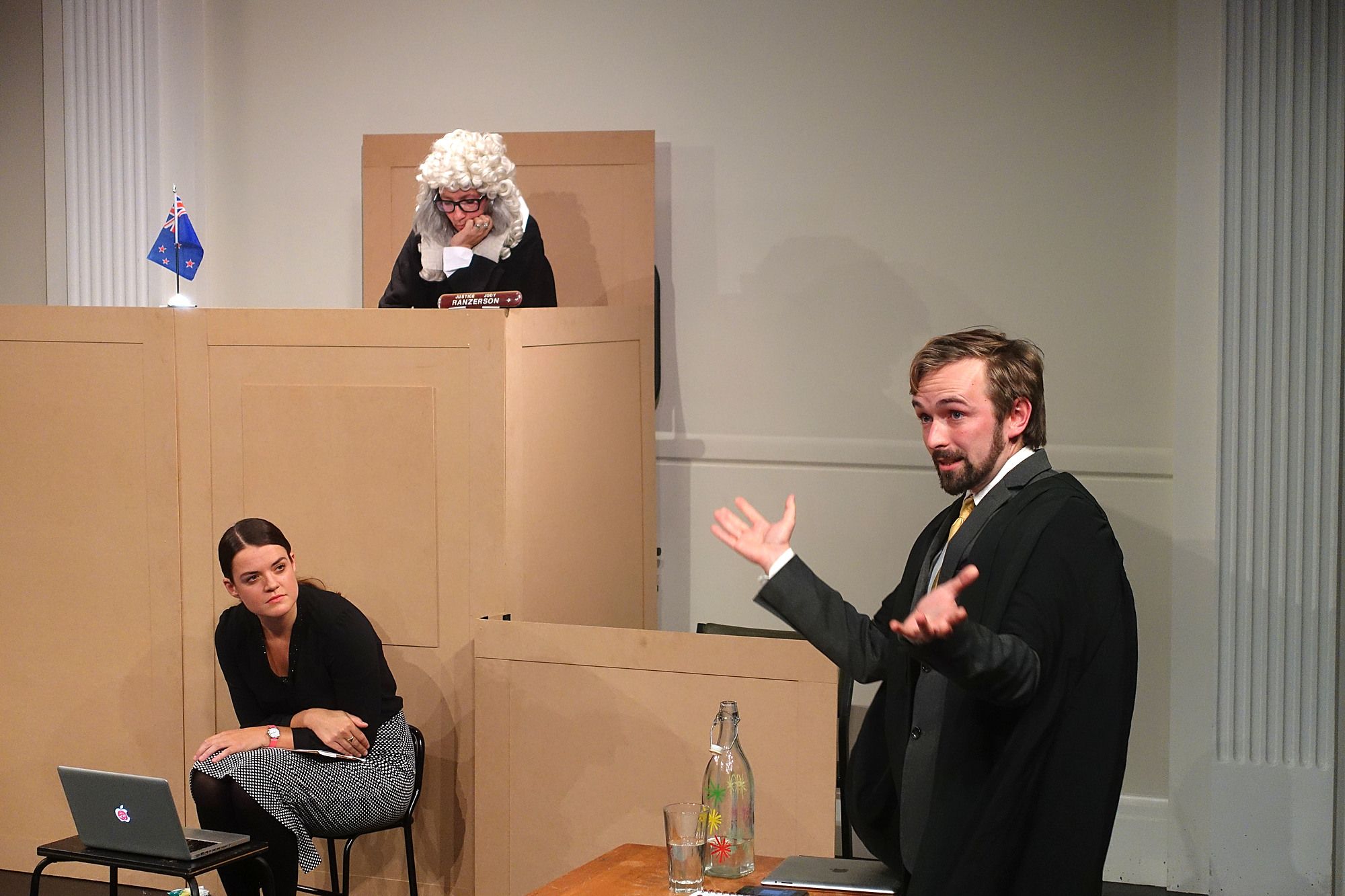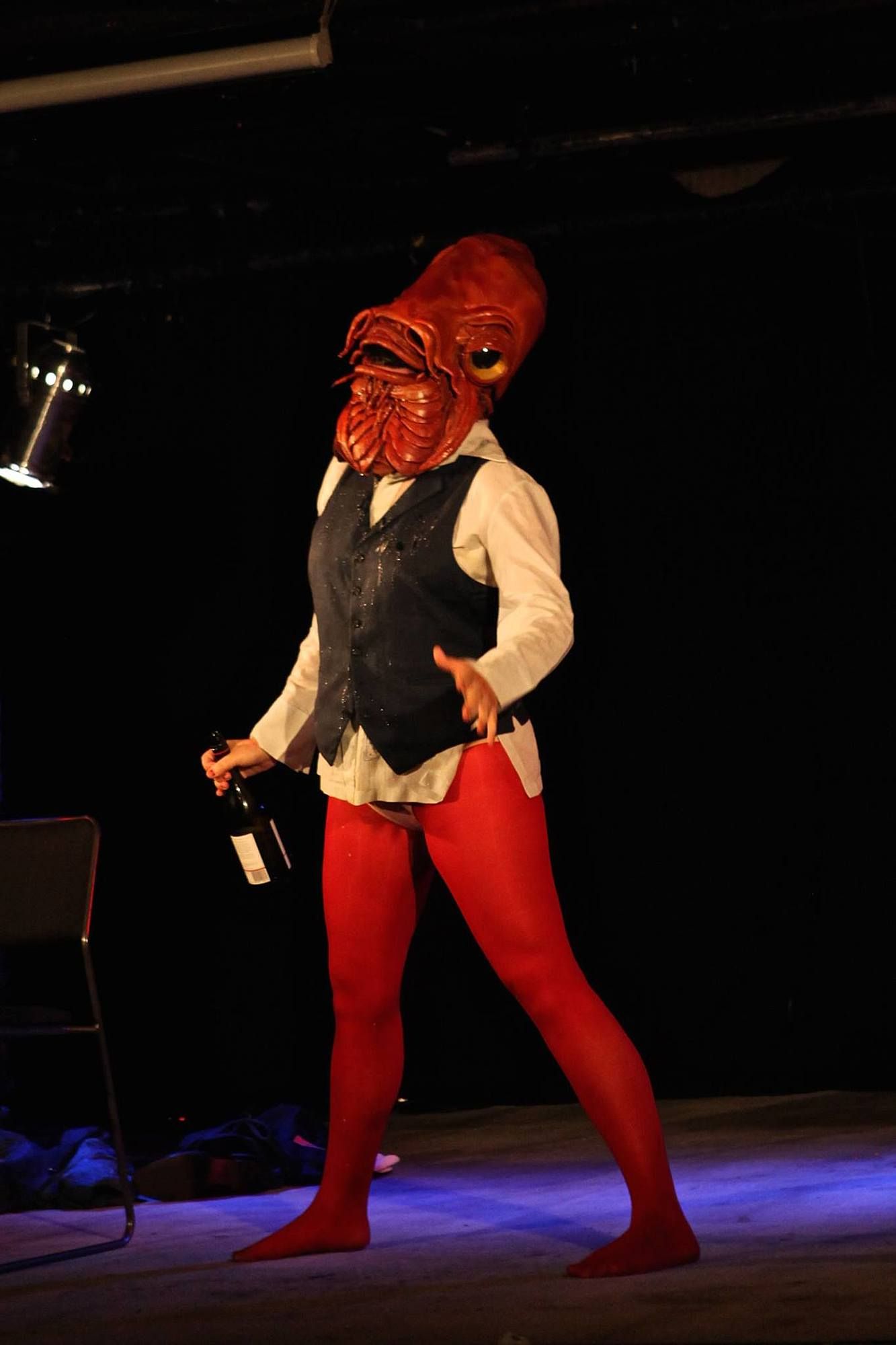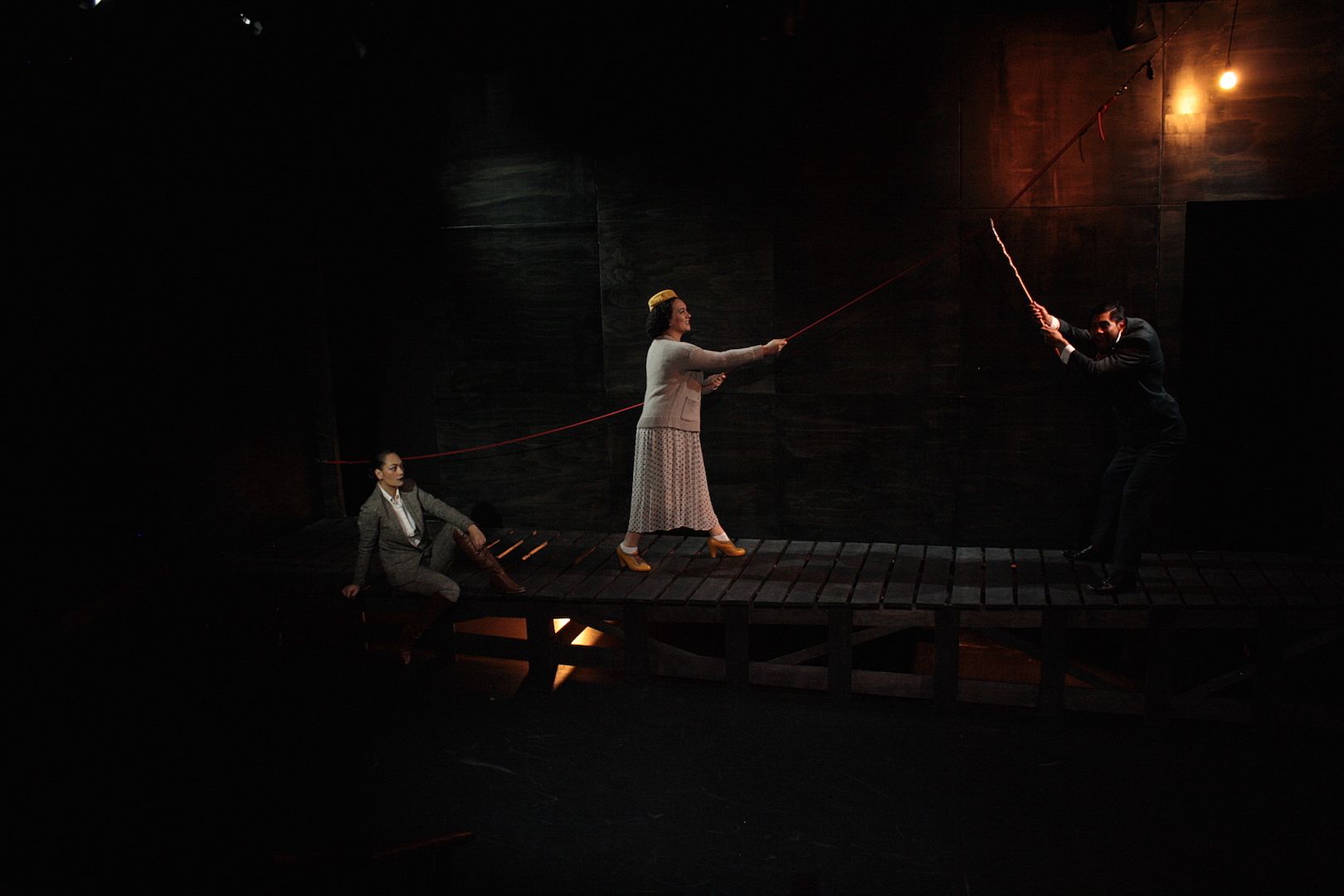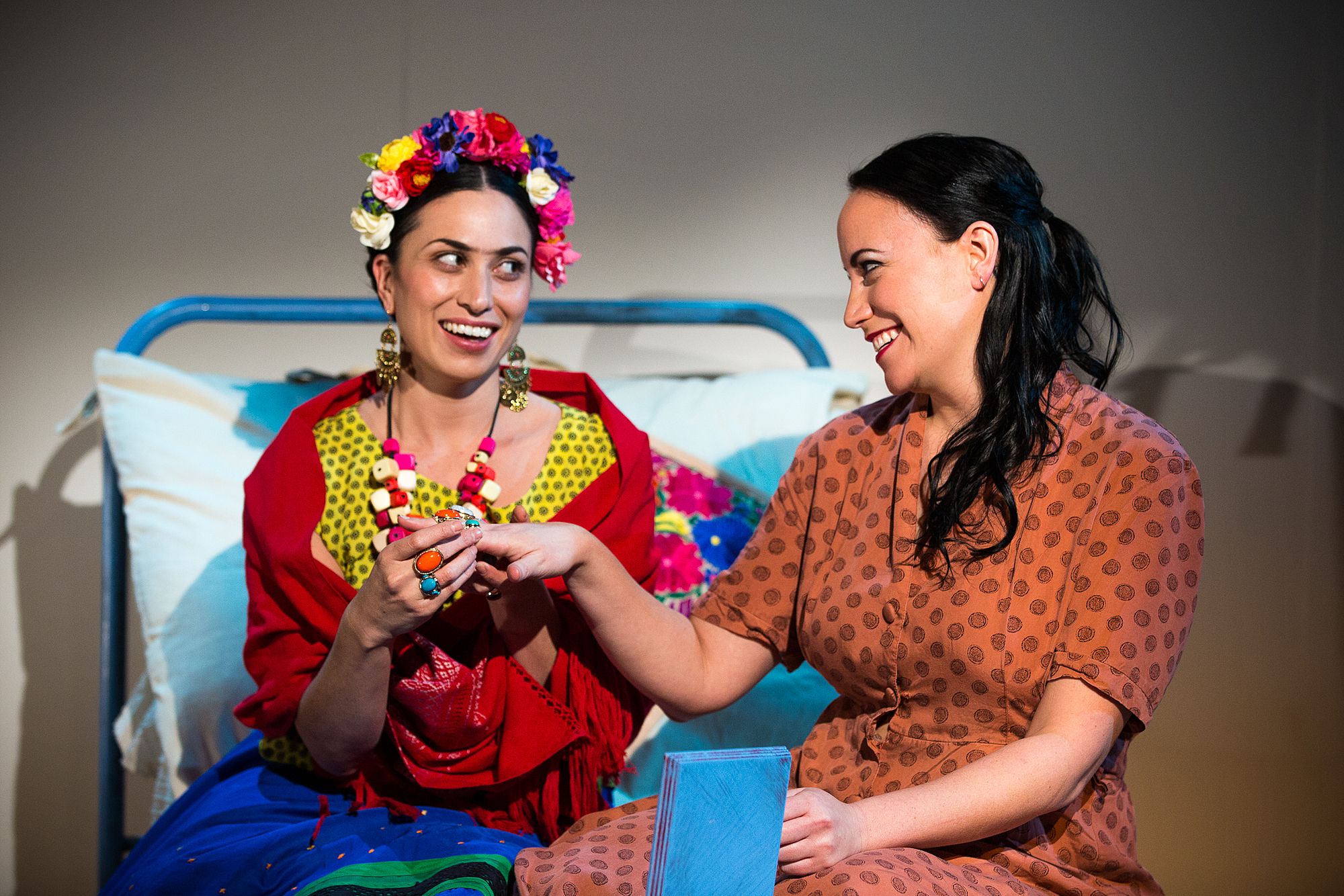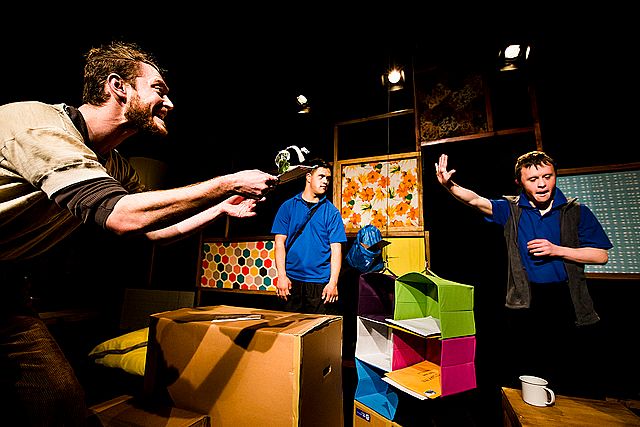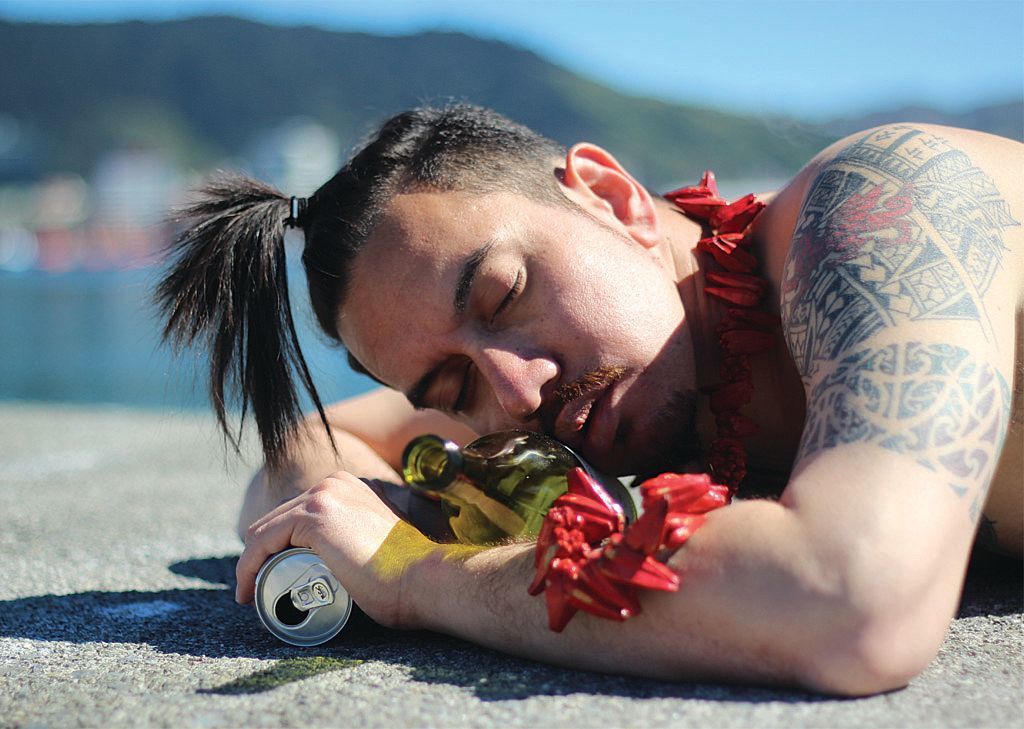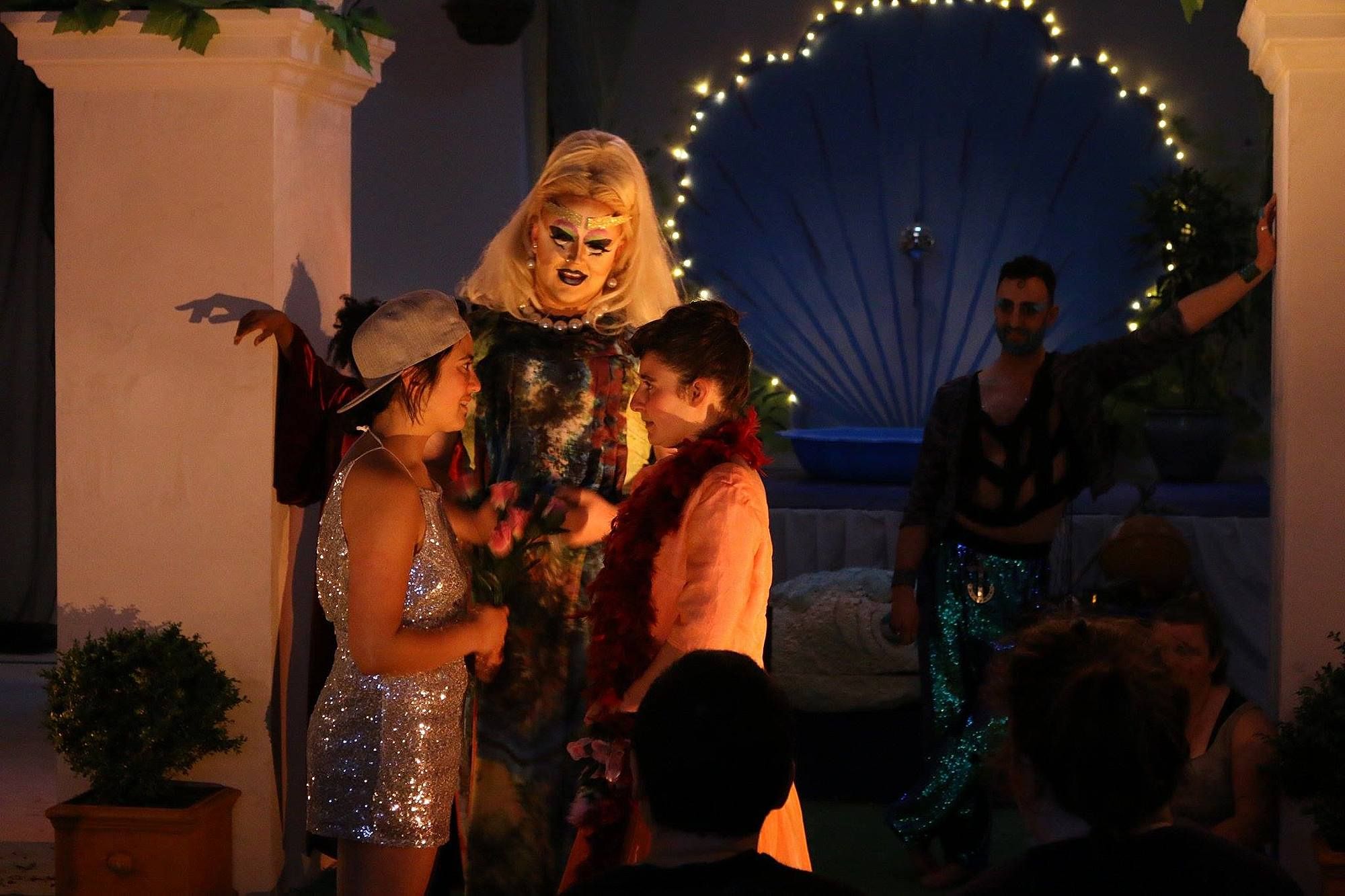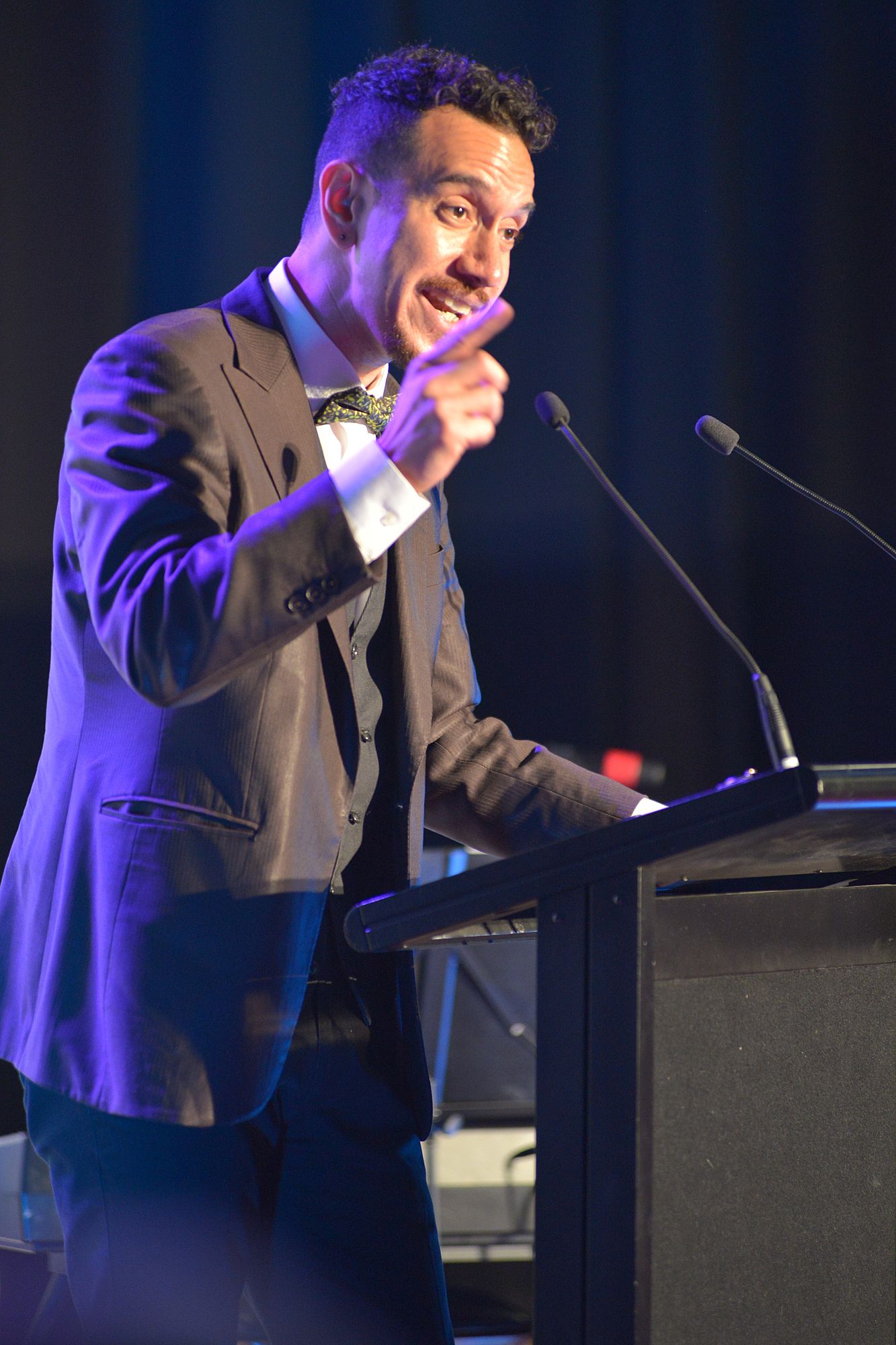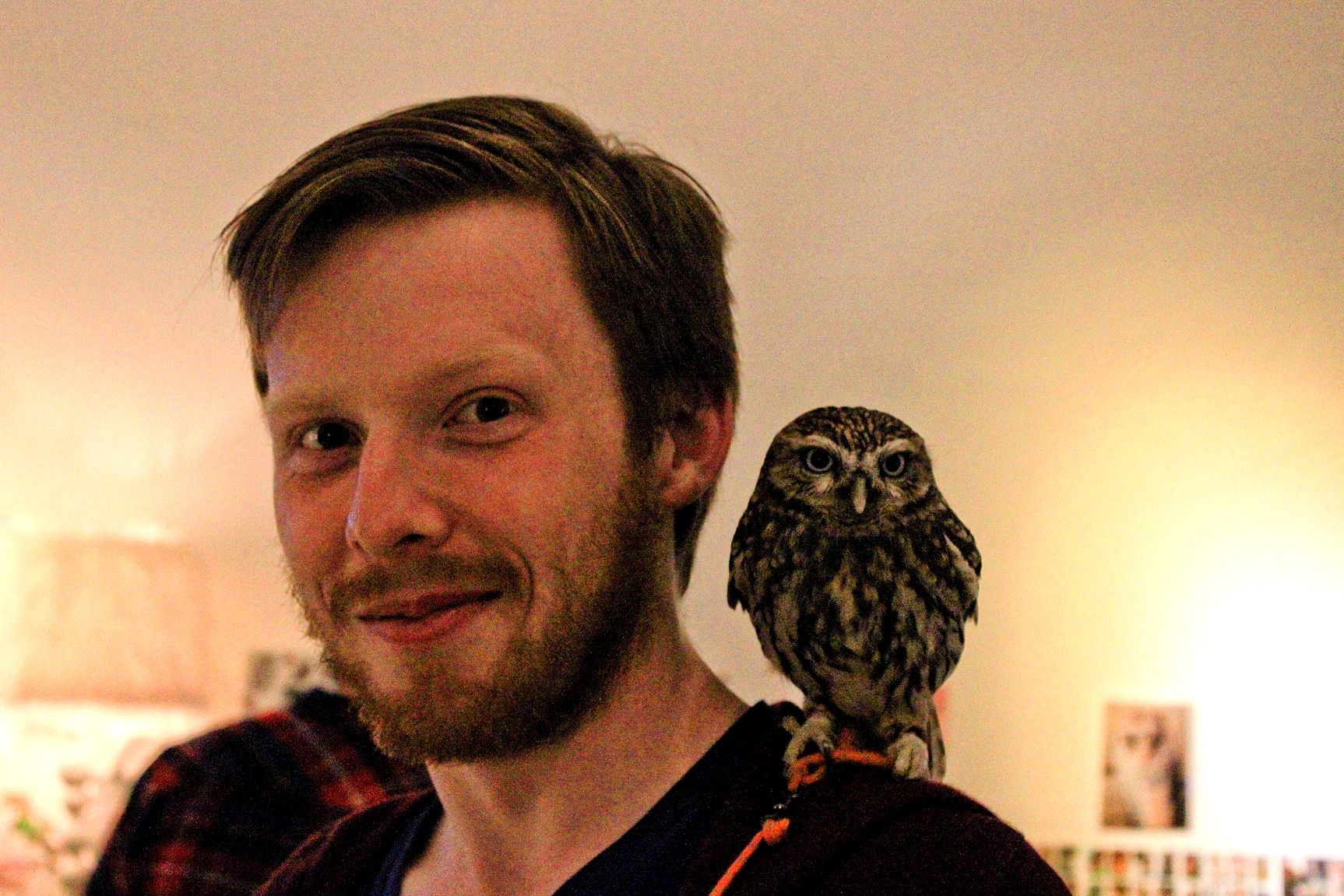"I Am More Important Than Shakespeare": Ten Moments in Wellington Theatre 2016
Adam Goodall takes stock of the triumphs, the anxieties and the must-do-betters of Wellington theatre in 2016.
Adam Goodall takes stock of the triumphs, the anxieties and the must-do-betters of Wellington theatre in 2016.
“It saddens me to see the city I love losing its place as the cultural capital.” That was Victoria University of Wellington theatre lecturer Lori Leigh’s verdict. Summarising the year in Wellington theatre for the Playmarket Annual, Leigh’s anxiety about the state of our local theatre was obvious from the jump. “Wellington theatre has had a year marked by festivals, remounts and touring productions,” she wrote. “I’ve struggled to find works that did not fit into one of these three categories.”
She’s not wrong. Almost all of my favourite shows of the year fit that bill. If that points to anything, it’s a slow-down in the amount of new work being produced by Wellington theatremakers, particularly those makers caught between drama school and Circa, between BATS and the New Zealand Arts Festival. With parsimonious funding bodies, a small theatre-going population and the increasing cost of making and living in Wellington, it’s no wonder that a lot of people five or ten years into their career have started looking to Auckland, or to international markets, or to giving it all up.
2016 felt like a lull because of this. Established venues and new directors both were putting up Shakespeares and Broadway hits, Wellington premieres of well-travelled plays and revivals of less-travelled New Zealand works. If there were New Zealand premieres happening in the city, they often felt underdeveloped, under-rehearsed or underfunded; when they didn’t, they often had a festival backing them up, offering vital marketing and financial support.
But it’s not all bad that Wellington theatre was dominated by festivals, Aucklanders and new productions of old work. This year, Wellington festivals offered solidarity and a safety net to promising and invigorating work like The Vultures, The Offensive Nipple Show, Layman, and then she let herself go and Shot Bro. Crowd-pleasing shows like Beards! Beards! Beards! and important shows like Rukahu got the chance to live again, to regroup and rebuild and refine what they had. And it’d be a sad state if incredible new New Zealand work like Hudson and Halls Live (my favourite show of the year) and If There’s No Dancing At The Revolution Then I’m Not Coming stopped right after their first season.
All of these things are good, and they’re necessary to ensure that the New Zealand theatre ecosystem is talking among itself, sharing new ideas and building new work. The new work that’s been built in 2016 has been shaky, even with writers and directors like Keeley Meechan (Last Meals), Finn Teppett (My Dad’s Boy), Stella Reid (Orphans) and Fran Olds and Luke Hanna (The Fence) making bold artistic moves within the limited space they’ve been given. Perhaps that’s sign of a downturn, an exodus of artists from Wellington that we need to brace ourselves for and actively work against. Some of the conversations I’ve had this year have been anxiously predicting that, and these predictions aren’t without foundation. It won’t get any less expensive to work in Wellington, anyway.
Perhaps, though, part of it is the typical cycle of the city. The last generation turns to bigger productions and touring and screenwork, while the new generation learns how to make their mark. The people ‘left’ have been making great new work, too: confrontational, joyous and powerful, some of it by exciting new practitioners and some of it by older people who’ve been around the block for a while. I want to highlight that in this round-up.
To keep this going, we do have to mobilise and push back against the conditions that are making art in general - not just theatre - increasingly unsustainable to build a career in. We also need to keep sharing our stories and our ways of keeping afloat with each other, not just on stage but in rehearsal rooms and meeting rooms. That’s not necessarily served by battling over who’s the ‘cultural capital’ of New Zealand. It’s served by talking among ourselves, about work and about everything that plays a part in its life.
Dog & Bone
A story of two Māori brothers on opposite sides of the Pākehā settlement of Pōneke, Helen Pearse-Otene's Dog & Bone, staged by Taki Rua and Te Rākau, was rich in history and charged up with the energy of its 27-strong ensemble, led by muscular, fiercely-connected performances from men of the hour Errol Anderson and Jamie McCaskill. Detailing the damage wrought across families and iwi by British colonisation, Dog & Bone was a tragedy passionately told and it sent shivers up my spine every other scene. The play is the second part of the underTOW, Pearse-Otene’s planned four-part epic of local history, and all four parts play at Te Papa’s Soundings Theatre next month. It is imperative that you go.
The production design for The Devil's Half-Acre
Finally working with an Arts Festival budget (and what must be their biggest budget since 2013's similarly beautiful Broken River), Trick of the Light assembled a formidable gang of designers and pulled off something magical. A mix of old collaborators (Tane Upjohn-Beatson on sound and music, Marcus McShane on lighting) and new (Jon Coddington on puppet design, Meg Rollandi on literally everything else) collaborated on a grimy, rust-eaten vision of 1860s Dunedin filled with shadows and gothic supernaturalism. Everything felt perpetually dangerous and full of secrets and the production was dotted with moments of breathtaking, beautiful spectacle. It was a thrilling visual statement, one that’s still incredibly vivid in my mind.
A Trial
The night I saw Binge Culture and Barbarian Productions’ A Trial, a gloriously silly take on the contemporary defamation trial, pollster and Kiwiblogger David Farrar took the stand to testify to the soundness of the Kiwimeter poll. The plaintiff, TVNZ, had brought proceedings against an unnamed Twitter user for calling their poll racist. Farrar was a witness for the plaintiff, and Joel Baxendale, acting as TVNZ’s bumbling counsel, peppered him with softballs about statistical methods, Farrar clearly enjoying the opportunity to lecture the room. Then counsel for the defendant, Karin McCracken, stood and methodically dismantled all of his arguments, pressing him on why, exactly, a legitimate poll would need to reinforce racist and colonialist attitudes as ‘patriotism’. I don’t know whether Farrar was briefed that this would happen, but it doesn’t really matter because it was real when his face went deep red, and it was real when, minutes later, half the courtroom started dancing to ‘Love Don’t Cost A Thing’. A Trial was a striking use of a format that’s often theatre in its own right, laser-focussed on interrogating the social status quo with detail and disrespect, and never losing its ludicrous, inclusive spark.
An Hour With Ackbar
The Comedy Festival seemed weirder than usual this year. Even with all the dad-joke-action-thrillers and Christmas-themed fever dreams, though, the one show I haven’t stopped thinking about is An Hour With Ackbar. In a beautifully-constructed, weirdly-articulated Admiral Ackbar mask, Anya Tate-Manning lived for an hour in the fish-man’s shoes, committing fully to her ridiculous joke. She crooned lounge songs with a silly gravel voice, made self-pitying anti-jokes, regularly knocked back whiskey (which spilled out from the bottom of the mask) and lamented a life poorly-lived. An Hour With Ackbar was a beautiful catastrophe, an intentionally awkward trainwreck performed with absolute commitment and incredible pathos.
Kia Mau Festival
Ahi Kaa AK Festival was one of last year’s most exciting developments in Wellington theatre, the most high-profile in a series of new spaces designed specifically to develop Māori and Polynesian work. This year, Ahi Kaa transformed into Kia Mau and transformed its focus with it. It’s still a vital and exciting showcase for new work, like Miria George’s caustic satire The Vultures and Rob Mokaraka’s endlessly compassionate confessional Shot Bro: Confessions of a Depressed Bullet, but it also carved out a place for itself as a new and louder platform for tried and tested shows like Regan Taylor’s goofily loose SolOTHELLO and White Face Crew’s La Vie Dans un Marionette, as beautifully choreographed and bittersweet a piece of clowning as you could ever hope to find. It’s a different festival now, the well-travelled finding a home with the new and the risky, but it’s also a better festival for it. Perhaps, even, the country’s best annual celebration of theatre.
Kali Kopae in La Casa Azul
There’s a big, tough discussion to be had about the casting of Māori actresses as Frida Kahlo and the people in her life in Circa Theatre’s La Casa Azul - Inspired by the writings of Frida Kahlo - a discussion about what it means to cast minority actors as other ethnicities, especially in a relatively small theatre community like Wellington - but it’s not really a discussion that I should be leading. (There’s a whole other discussion about the bizarre casting of Pākehā Gavin Rutherford as Mexican muralist Diego Rivera, one that should start and end with ‘how did this happen?’) That aside, no-one this year really reached the staggering heights of Kali Kopae’s performance as Frida. Brittle and ferocious, Kopae lurched through Kahlo’s tempestuous life with a brash pride that often registered as indignation but really acted as a fragile shell, papering over the betrayal and pain that dogged her through her years. Restrained only by the physical demands of the role, Kopae owned every inch of Ian Harman’s weathered set and every inch of Frida’s life, expertly unfurling the paradox at her centre.
Everybody Cool Lives Here
Rose Kirkup and Nic Lane’s company opened the year with I Am… Tasha Fierce, a bittersweet love letter to fandom and the strength we pull from the things we love, and Vivid WGTN, a street art collaboration with the Wellington Boys and Girls Institute that’s now expanded to document and add to Wellington’s public graffiti spots. They followed that in August with No Post On Sunday, another love letter, this time written alongside Active Wellington and addressed to small-town New Zealand and all the small, deeply co-dependent communities living there. Each of these works is Kirkup and Lane handing a megaphone to individuals or groups often denied that megaphone, helping them seize that power and give a voice their values that cannot be silenced. Everybody Cool Lives Here is making important work, but they’re also making great work, as good a testimony as any to the power of using your platform to amplify others’ voices.
Rukahu
There’s a dance in Rukahu that Jon Bon Fasi (James Nokise) does. It involves a horse, and it’s the hardest I’ve laughed in a theatre all year. Rukahu’s real brilliance, though, was in the way it twisted and subverted moments like that. Nokise was a brilliantly destabilising force throughout, turning jokes into interrogations of his Pākehā audience and moments of solidarity with Māori, Tongans, Fijians, Samoans, Cook Islanders and anyone and everyone else who’s seen a Pākehā arts industry gloss over their differences, absorb them into a monoculture and proudly call it ‘diversity’. Nokise is a bolt of lightning and this should be playing everywhere.
Queer Theatre
At the end of November, there were three shows on at the same time, one by a major company, that were all made by queer artists and telling stories about queer people - Silo Theatre’s raucous love letter to two undersung icons, Hudson & Halls Live!; Sam Brooks’ charming and thorny portrait of a gay boy thirsty for what he can’t have, Riding in Cars with (Mostly Straight) Boys; and Ania Upstill’s adaptation of Galathea: Into The Bush, which reimagined John Lyly’s Tudor gender-bender as a bombastic and hilarious queer fantasia. All three shows were brilliant and unconventional in their own way, and had some of the most thrilling performances I’ve seen all year too - Chris Parker in Hudson & Halls Live!, Tim Earl in Riding in Cars, Keagan Carr Fransch in Galathea.
The fact that this kind of coincidence is even worth mentioning speaks something to how rare queer representation is in Wellington theatre and New Zealand theatre more broadly, but a confluence of work like this doesn’t erupt from nowhere. NZ queer artists started this decades ago. Too often, though, we don’t see their work get past mainstream gatekeepers. And, of course, even the categorization demands interrogation, as it can easily be used a label of homogeneity no matter the aesthetic or narrative – and those gatekeepers often will, treating diverse voices as synonymous with ‘financial risk’. (Further, there’s still work to be done to deconstruct the definition beyond the gay white male paradigm). But if this fortnight – and the small handful of other shows with queer concerns that were staged this year, like Ali Foa’i’s messy but heart-wrenching work-in-development Thirsty, Carr Fransch and Samuel Phillips’ elegiac adaptation of Frank Wedekind’s Spring Awakening, and Chaz Harris’ deeply conservative, frustratingly conventional The Next Best Thing – points to anything, it’s that treating ‘queer theatre’ as an easy categorization actively obfuscates a range of voices and forms and stands in the way of their huge potential to innovate and communicate with the next generation of audiences.
James Nokise at the Wellington Theatre Awards
This isn’t about his jokes, though they were very good. This is about his speech at the end. The speech where he asked a room of 250-odd members and friends of the Wellington theatre community to repeat after him, “I am more important than Shakespeare.”
Unlike Australian playwright Lachlan Philpott earlier this year, Nokise wasn’t attempting an insurrection against Shakespeare on the 400th anniversary of his death. He was using this provocation as a launchpad for an impassioned challenge to all of these writers and directors and actors and producers and designers and programmers and politicians, a call to recognise the importance of their platform and to use it to amplify and stand in solidarity with “people numb from the effects of society”. While boosting shows like Hudson & Halls Live!, Nancy Brunning’s Hikoi and Jamie McCaskill’s Not In Our Neighbourhood (“We all need to see the strength of women who survive violence, not the reinforcement of the violence in people of colour, or their susceptibility to caucasian manipulation”), Nokise reminded an industry audience of the importance of new work, work that responds to New Zealand and the world in 2016, work that’s accessible and galvanising to both artists and audiences. It was a rare moment of power and purpose in a year that’s been precarious and dispiriting in so many ways, and if there was any justice it would recalibrate the risk-averse programming on our mainstages.
“I’m not saying don’t perform Shakespeare,” Nokise said at one point, reassuring the audience member who stood up to revolt against this heresy. “Trump, Putin, Theresa May - of course King Lear. But isn’t Lear also about the danger of reverence without question?”
For further reading, see Sam Brooks' ten moments in Auckland theatre.
